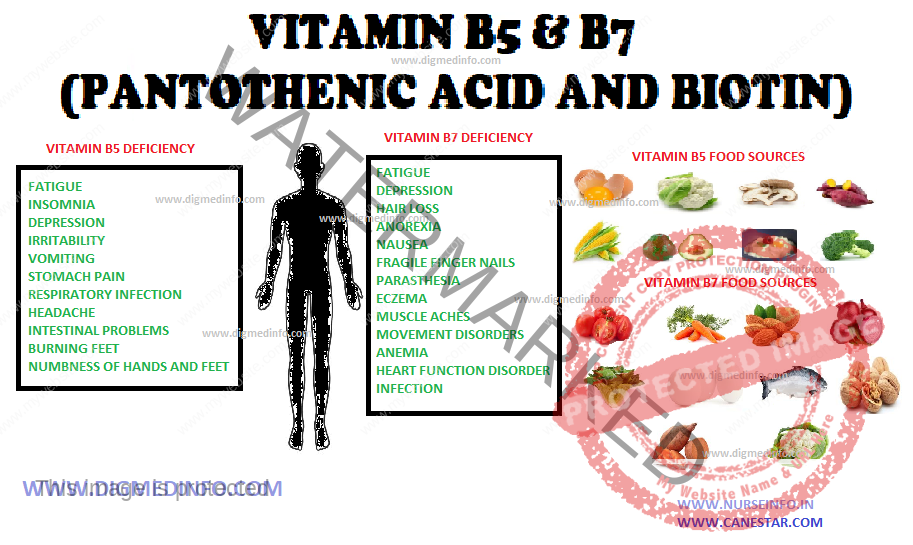PANTOTHENIC ACID AND BIOTIN
PANTOTHENIC ACID
Pantothenic acid is converted to coenzyme A in the body. This vitamin is widely distributed in animal and vegetable foods and hence dietary deficiency is very rare. Though the exact requirement is not clearly known, 10 mg may represent an adequate daily intake. Deficiency in experimental animals leads to dermal and hair changes, neuromuscular degeneration and fatal adrenal hemorrhage.
Calcium pantothenate has been used for other conditions like paralytic ileus, and streptomycin toxicity based on empirical findings. There is no conclusive proof to support these claims.
BIOTIN
This is an organic acid functioning as a coenzyme in several carboxylation reactions. It is present in several articles of food and is also synthesized by intestinal bacteria. Daily requirement is about 100 mcg. Naturally occurring deficiency is rare, but conditioned deficiency may develop by overfeeding exclusively with white of egg. This is due to the presence of avidin which antagonizes biotin. Infants who are on parenteral feeding with biotin deficient diets may develop symptoms such as lassitude, irritability, paresthesiae, anorexia, rashes, and hair loss. All these improve with the administration of biotin.
Inherited disorders of biotin metabolism occur rarely. Two types are known. One type may present in the first few weeks of life with metabolic acidosis and a rash. The other presents in the first few months of life with rash, keratocojunctivitis, alopecia, ataxia, hypotonia, and metabolic and lactic acidosis. Both groups respond dramatically to large doses of biotin.


